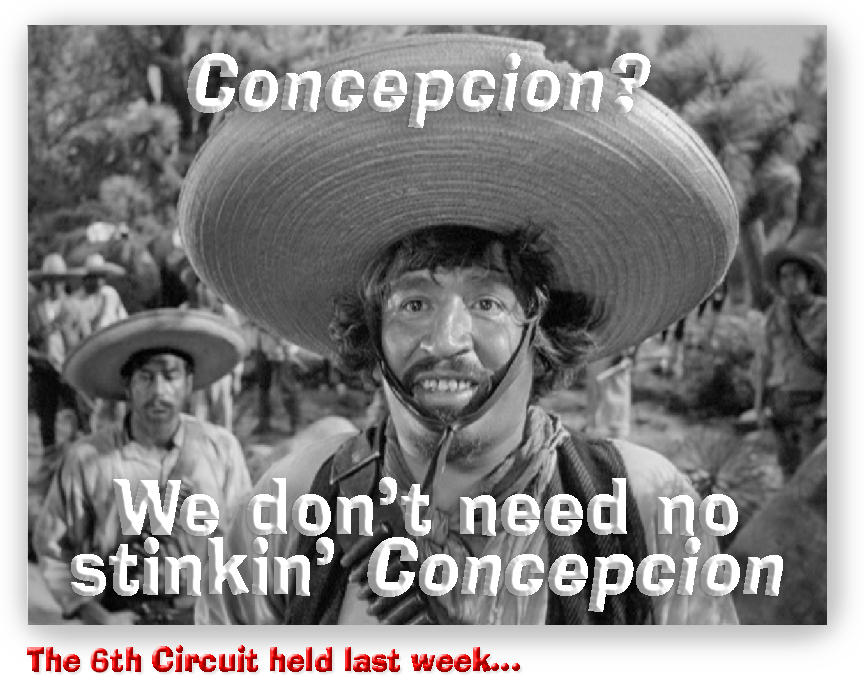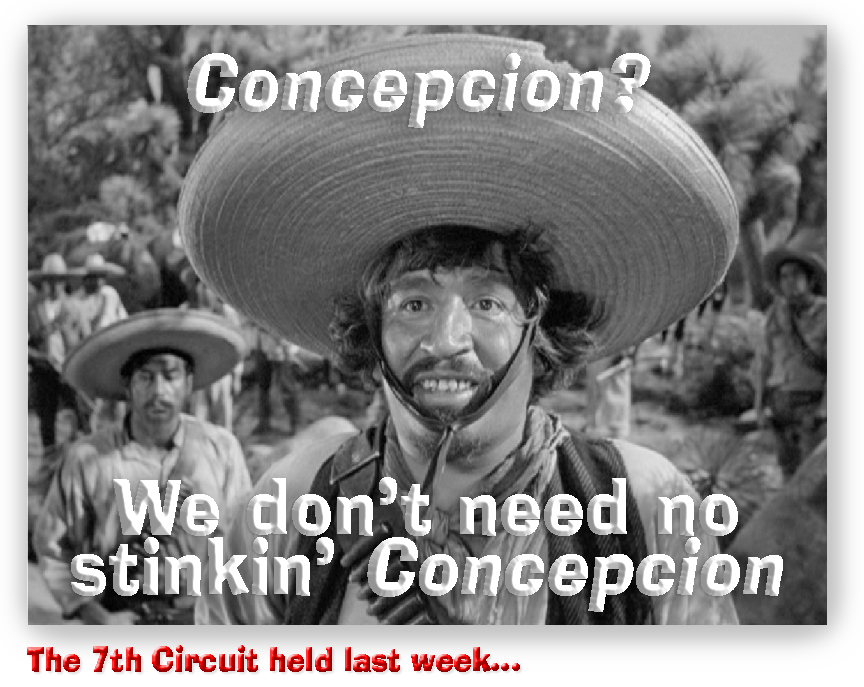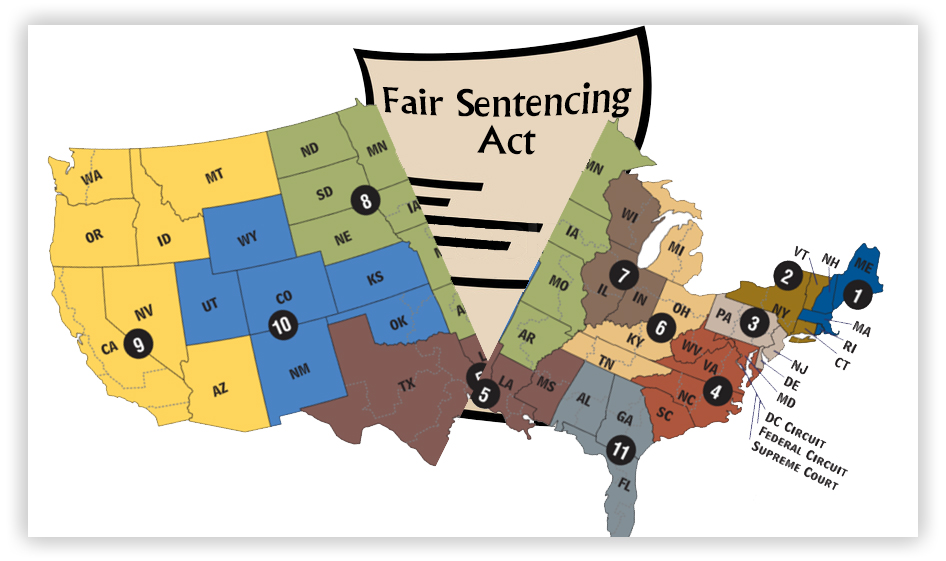We post news and comment on federal criminal justice issues, focused primarily on trial and post-conviction matters, legislative initiatives, and sentencing issues.

DOES CONCEPCION HOLD LESSONS FOR COMPASSIONATE RELEASE?
The Supreme Court ruled on the final two criminal cases of the term on Monday (although there are six more October Term 2021 cases yet to be decided before the end of the week).
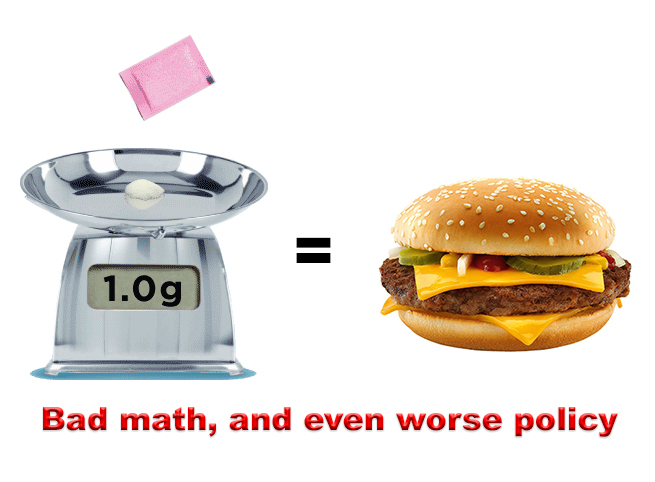 Back in 2009, Carlos Concepcion pled guilty to distributing at least five grams of crack cocaine, and was sentenced to 228 months in prison. The following year, Congress passed the Fair Sentencing Act, which brought crack sentences more in line with powder cocaine sentences, down from a 100:1 ratio to an 18:1 ratio.
Back in 2009, Carlos Concepcion pled guilty to distributing at least five grams of crack cocaine, and was sentenced to 228 months in prison. The following year, Congress passed the Fair Sentencing Act, which brought crack sentences more in line with powder cocaine sentences, down from a 100:1 ratio to an 18:1 ratio.
But the Fair Sentencing Act was not retroactive, so people sentenced before it was passed – like Carlos – could not benefit from it. Only when the First Step Act (FSA) passed in 2018 were the benefits of the Fair Sentencing Act extended to the Carlos Concepcions of the world.
Under FSA § 404, Carlos was entitled to apply to his sentencing court for resentencing at a lower level. Like most inmates – whose resources are only sufficient to pay for some telephone calls home and a few items in the commissary – Carlos could not afford a lawyer, so he filed pro se.
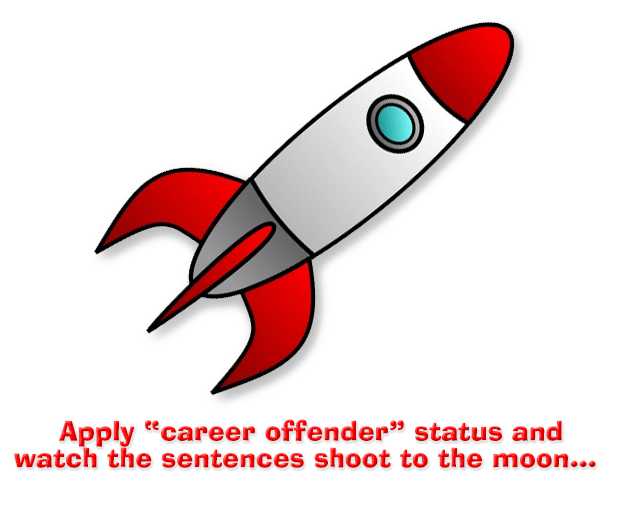 Complicating Carlos’s case was the fact that under the advisory Sentencing Guidelines, he was deemed to be a career offender. Career offender status, a label that is easily applied to people who have hardly spent their lives as a criminal, sends a defendant’s minimum sentencing range guideline into low earth orbit. Carlos’s range was no exception. Under the statute, Carlos faced a minimum 5-year sentence, but his advisory sentencing range as a Guidelines career offender started at 17½ years.
Complicating Carlos’s case was the fact that under the advisory Sentencing Guidelines, he was deemed to be a career offender. Career offender status, a label that is easily applied to people who have hardly spent their lives as a criminal, sends a defendant’s minimum sentencing range guideline into low earth orbit. Carlos’s range was no exception. Under the statute, Carlos faced a minimum 5-year sentence, but his advisory sentencing range as a Guidelines career offender started at 17½ years.
The government argued that Carlos’s Guidelines sentencing range did not change despite the fact that the Fair Sentencing Act lowered his minimum sentence to zero, because the career offender guidelines were not based on drug amount or statutory minimum sentences. Carlos responded that he should no longer be considered a career offender because one of his prior convictions was vacated and his prison record showed evidence of rehabilitation through his participation in drug and vocational programs, spiritual growth, and a solid reentry plan.
Carlos’s sentencing judge sided with the government, holding that because Carlos’s sentencing range remained the same, Carlos could not rely on the Fair Sentencing Act for a lower sentence.
Last Monday, the Supreme Court ruled in favor of Carlos. Justice Sonia Sotomayor, writing for a 5-4 majority, said that “Federal courts historically have exercised… broad discretion to consider all relevant information at an initial sentencing hearing, consistent with their responsibility to sentence the whole person before them. That discretion also carries forward to later proceedings that may modify an original sentence. Such discretion is bounded only when Congress or the Constitution expressly limits the type of information a district court may consider in modifying a sentence.”
 Congress did nothing in the First Step Act to “contravene this well-established sentencing practice,” Sotomayor said. “Nothing in the text and structure of the First Step Act expressly, or even implicitly, overcomes the established tradition of district courts’ sentencing discretion.”
Congress did nothing in the First Step Act to “contravene this well-established sentencing practice,” Sotomayor said. “Nothing in the text and structure of the First Step Act expressly, or even implicitly, overcomes the established tradition of district courts’ sentencing discretion.”
Ohio State University law professor Doug Berman, writing in his Sentencing Law and Policy blog, argues that the Concepcion ruling has an impact well outside the seemingly limited FSA Sec. 404 resentencing. “Specifically,” he wrote, “I think the decision resolves not only the circuit split surrounding crack resentencing cases, but also the circuit split surrounding what factors can serve as the basis for compassionate release after the FIRST STEP Act.
Berman noted:
There is a deep circuit split about whether non-retroactive changes in sentencing law may constitute “extraordinary and compelling reasons” for compassionate release. Ever the textualist, I have argued that non-retroactive changes in sentencing law can provide the basis for compassion release because nothing in the text of § 3582(c)(1)(a) supports the contention that non-retroactive changes cannot ever constitute ‘extraordinary and compelling reasons” to allow a sentence reduction, either alone or in combination with other factors. But I believe the Third, Sixth, Seventh and Eighth Circuits have all formally held otherwise. And yet, this language from the Supreme Court’s opinion in Concepcion would seem to undercut any court efforts to invent extra-textual limits on sentencing or resentencing considerations:
It is only when Congress or the Constitution limits the scope of information that a district court may consider in deciding whether, and to what extent, to modify a sentence, that a district court’s discretion to consider information is restrained…
The only limitations on a court’s discretion to consider any relevant materials at an initial sentencing or in modifying that sentence are those set forth by Congress in a statute or by the Constitution….
Moreover, when raised by the parties, district courts have considered nonretroactive Guidelines amendments to help inform whether to reduce sentences at all, and if so, by how much…. Nothing express or implicit in the First Step Act suggests that these courts misinterpreted the Act in considering such relevant and probative information.
Berman argues that the Supreme Court’s language about a sentencing judge’s broad discretion “when considering a sentence modification is directly relevant to federal judges’ consideration of so-called compassionate release motions.”
 There is nothing in 18 USC § 3582(c)(1)(A)(i) (the statute on sentence reductions, generally if inaccurately known as “compassionate releases”) that in any way limits a judge in what he or she may consider in fashioning a lower sentence, or for that matter, in deciding whether to impose a lower sentence at all. That should be game, set and match for the issue of the limits of a court’s discretion on deciding a compassionate release motion.
There is nothing in 18 USC § 3582(c)(1)(A)(i) (the statute on sentence reductions, generally if inaccurately known as “compassionate releases”) that in any way limits a judge in what he or she may consider in fashioning a lower sentence, or for that matter, in deciding whether to impose a lower sentence at all. That should be game, set and match for the issue of the limits of a court’s discretion on deciding a compassionate release motion.
One interesting twist: the Sentencing Commission will soon be reconstituted, and it seems clear that the new commissioners consider rewriting U.S.S.G. § 1B1.13 – the Guidelines policy statement on compassionate releases – as job one. If a rewritten § 1B1.13 limits a sentencing court’s discretion in granting or denying a compassionate release motion, would such a limitation be one “set forth by Congress in a statute or by the Constitution?” Sentencing Guidelines must be submitted to Congress, but go into effect unless the Senate otherwise directs. And the compassionate release statute requires a sentencing judge to ensure that any sentence reduction “is consistent with applicable policy statements issued by the Sentencing Commission.”
But that’s a question for another time (specifically, after a new § 1B1.13 goes into effect, which probably will not be before November 2023. For now, movants for compassionate release would do well to apply Prof. Berman’s broad interpretation of Concepcion’s holding.
Concepcion v. United States, Case No 20-1650, 2022 U.S. LEXIS 3070 (June 27, 2022)
ABA Journal, In unusual lineup, SCOTUS rules for pro se prisoner who sought lower sentence under First Step Act (June 27, 2022)
Sentencing Law and Policy, SCOTUS ruling in Concepcion, while addressing crack cases, should also resolve circuit split on compassionate release factors (June 27, 2022)
– Thomas L. Root


 By now, everyone knows that last month a divided Sentencing Commission adopted a revised USSG § 1B1.13 that, as of November 1, will govern 18 USC § 3582(c)(1)(A) sentence reduction (compassionate release) motions. The USSC was unanimous on everything except the new § 1B1.13(b)(6), which directs that – in certain circumstances – “changes in the law… may be considered in determining whether the defendant presents an extraordinary and compelling reason, but only where such change would produce a gross disparity between the sentence being served and the sentence likely to be imposed at the time the motion is filed…”
By now, everyone knows that last month a divided Sentencing Commission adopted a revised USSG § 1B1.13 that, as of November 1, will govern 18 USC § 3582(c)(1)(A) sentence reduction (compassionate release) motions. The USSC was unanimous on everything except the new § 1B1.13(b)(6), which directs that – in certain circumstances – “changes in the law… may be considered in determining whether the defendant presents an extraordinary and compelling reason, but only where such change would produce a gross disparity between the sentence being served and the sentence likely to be imposed at the time the motion is filed…” Sorry, 8th Circuit. To paraphrase the late Daniel Patrick Moynihan, you’re entitled to your own opinion, but not your own facts. As Ohio State University law professor Douglas Berman wrote last week, “[T[he Commission in this new guideline is providing that nonretroactive changes in sentencing law CAN establish eligibility for a § 3582(c)(1)(A) sentence reduction in some circumstances.”
Sorry, 8th Circuit. To paraphrase the late Daniel Patrick Moynihan, you’re entitled to your own opinion, but not your own facts. As Ohio State University law professor Douglas Berman wrote last week, “[T[he Commission in this new guideline is providing that nonretroactive changes in sentencing law CAN establish eligibility for a § 3582(c)(1)(A) sentence reduction in some circumstances.”


